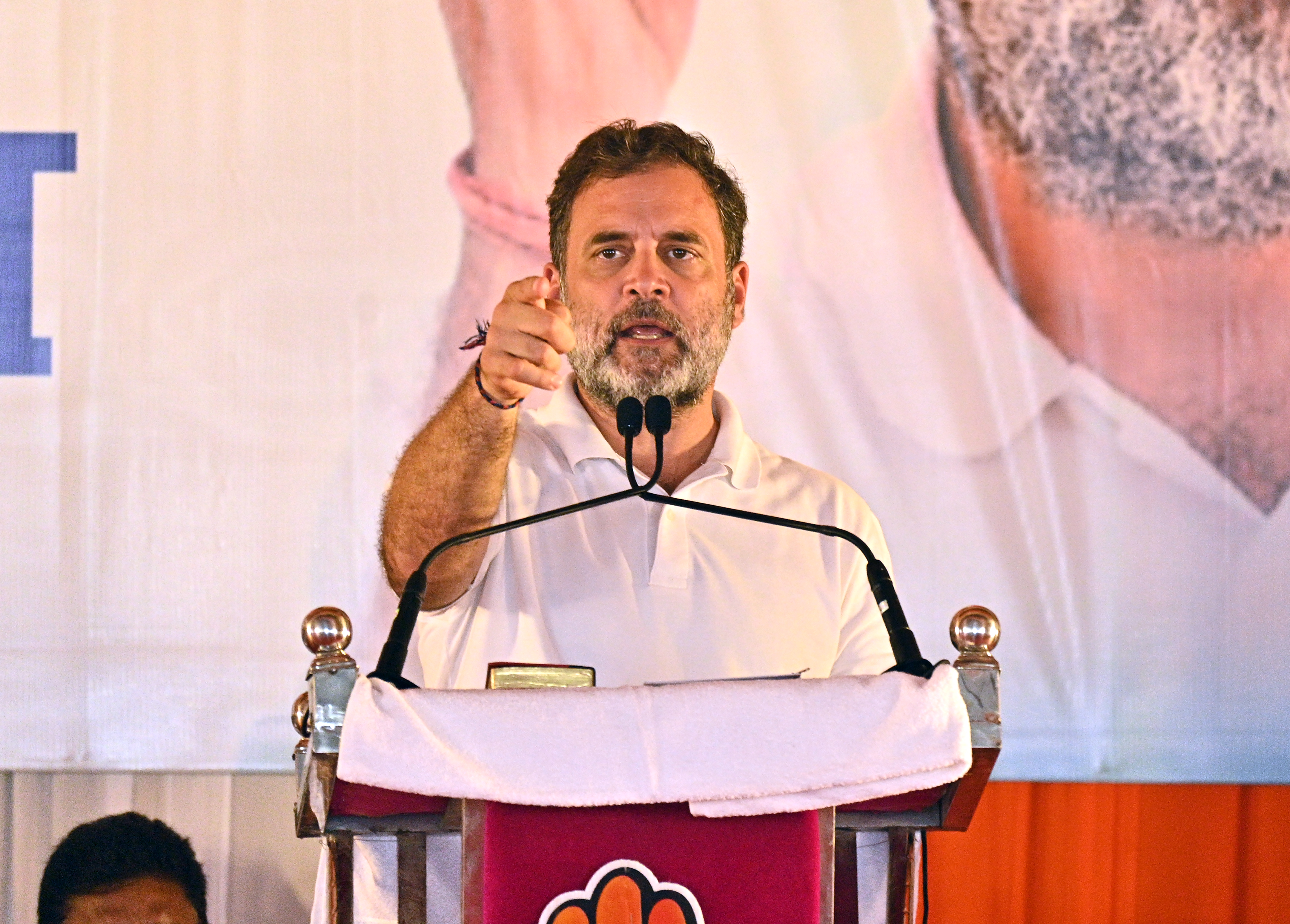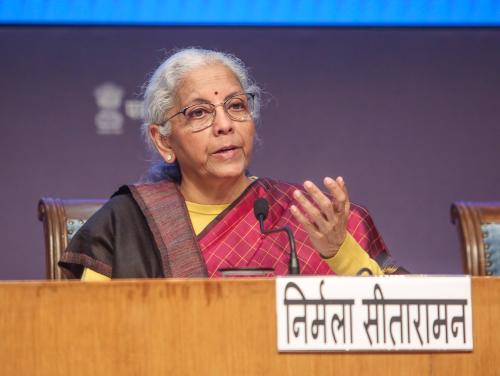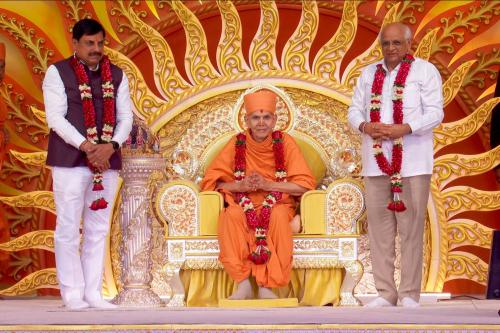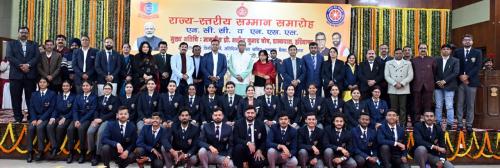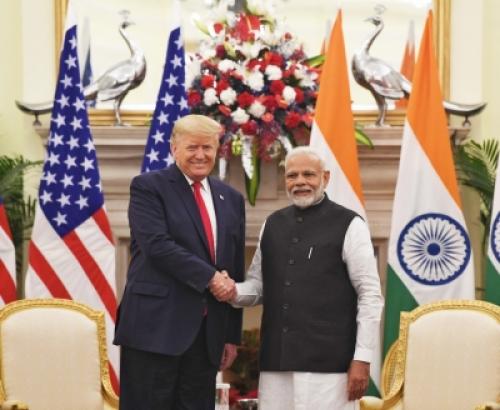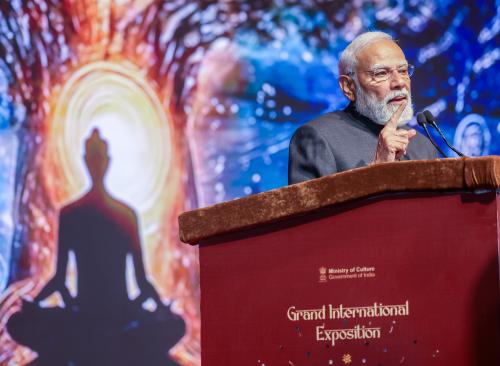Deepika Bhan
New Delhi, Nov 9 (IANS) It is interesting to observe how Congress leader Rahul Gandhi is attempting to woo 'Gen Z' towards his perspective on India, the current Central government, and the broader social climate. Almost all his public rallies and mass-connect events seem designed to stir the imagination of a generation that has grown up with access to the Internet, smartphones, and social media.
Gandhi has drawn inspiration from Gen Z uprisings in Nepal and a few other countries. He seems to believe that this large group of young people can be fed with sustained information interspersed with dramatic data and visuals and can be influenced and mobilised towards a particular idea.
He may not be wrong in that belief. The recent events in Nepal, although they led to large-scale destruction, were indeed driven by young people who organised rapidly through online networks.
Gen Z is known for its ability to mobilise people en masse around issues that affect their basic comforts and freedoms -- much like what was seen in Nepal. Outraged by the government's ban on social media, young people in Kathmandu took to the streets.
What followed was a period of intense violence after security forces opened fire on the protesters. The initial anger over the social media ban soon evolved into a broader movement targeting the government and ruling parties. The protesters torched government buildings, including the Parliament and courts, attacked politicians and officials, and ultimately, on September 9, ousted the sitting government.
Rahul Gandhi now seems eager to channel that same Gen Z energy in India -- to rally young people to rise and challenge the existing government. Gen Z has demonstrated its power in about seven countries, and in several others, it has taken to the streets to voice its dissent. The Nepal protests in September followed a similar youth-led agitation nearly a year earlier in Bangladesh, which eventually dislodged Prime Minister Sheikh Hasina.
It seems that Gandhi's advisors believe India's Gen Z could similarly be galvanised. This may explain why Rahul Gandhi has been directly addressing them on key issues -- most prominently, his claim of "vote theft", aimed at discrediting the Modi-led government.
He first invoked Gen Z soon after Nepal's violent unrest. On X, he wrote, "The youth of the country, the students of the country, the Gen Z of the country will save the Constitution, protect democracy, and stop vote theft… I always stand with them."
It was a carefully worded message that emphasised the Constitution, democracy, and voting rights -- values that deeply resonate with Gen Z. They are known to be vocal about freedom, rights, and fairness. So, when Rahul Gandhi speaks of democracy being in peril and elections being manipulated, it's a message likely designed to catch their attention.
His focus on Gen Z became even more explicit on November 5, during a press conference at the Congress national headquarters -- a day before the first phase of polling in the Bihar elections. In his opening remarks, he addressed young voters directly: "I want Gen Z to take this seriously because your future is being taken away from you. You are the ones being stolen from."
The presentation centred on his allegations of rigging by the Election Commission and the BJP in the Haryana Assembly elections. He concluded by saying: "India's Gen Z and youth have the power to restore our democracy with satya and ahimsa (truth and non-violence)."
Such statements make it clear that the developments in neighbouring countries -- Sri Lanka, Bangladesh, and Nepal -- have become sources of inspiration for Rahul Gandhi and his team. The sheer organisational power of the young -- networked, spontaneous, and emotionally charged -- is something every politician would envy. And Rahul Gandhi seems eager to replicate that energy in India.
Behind the idealism, there is a clear political calculation. Gandhi's "vote theft" narrative -- his accusation that elections under the Modi government are being manipulated -- isn't just about questioning institutions. It's a carefully chosen hook aimed at a generation that grew up believing in fairness, transparency, and the right to have a voice. If democracy is "being stolen," as he says, then Gen Z becomes both the victim and the saviour in his political script.
But will it work? That's the harder question.
Like their global peers, India's Gen Z is a hyper-connected generation. They are tech-savvy, mobile-first, and use online platforms for learning, shopping, and socialising. They are trend-focused rather than brand-loyal and are heavily influenced by digital creators. They are adept at "spaving" -- spending smartly by seeking discounts, rewards, and deals. They value flexible work, good pay, and travel opportunities. Most importantly, they live in the present, often prioritising short-term experiences over long-term planning.
So far, Gandhi's outreach hasn't produced a visible ripple. The rallies are getting louder, the social media content more tailored -- but the streets remain calm. The Gen Z audience is watching, scrolling, and maybe even agreeing in parts -- but not mobilising.
Yet, Gandhi's persistence is notable. His campaign for the Bihar elections was filled with Gen Z references, digital cues, and a tone designed to sound conversational rather than confrontational. He's clearly betting on long-term emotional investment rather than short-term electoral gain.
The real test will come on November 14, when Bihar's results are declared. For the NDA, it will be a test of governance. For the Mahagathbandhan, a test of alliance arithmetic. But for Rahul Gandhi, it will be something more symbolic -- a verdict on whether India's Gen Z is willing to buy into his promise of "saving democracy".
Right now, they seem intrigued -- but unconvinced.
(Deepika Bhan can be contacted at deepika.b@ians.in)



